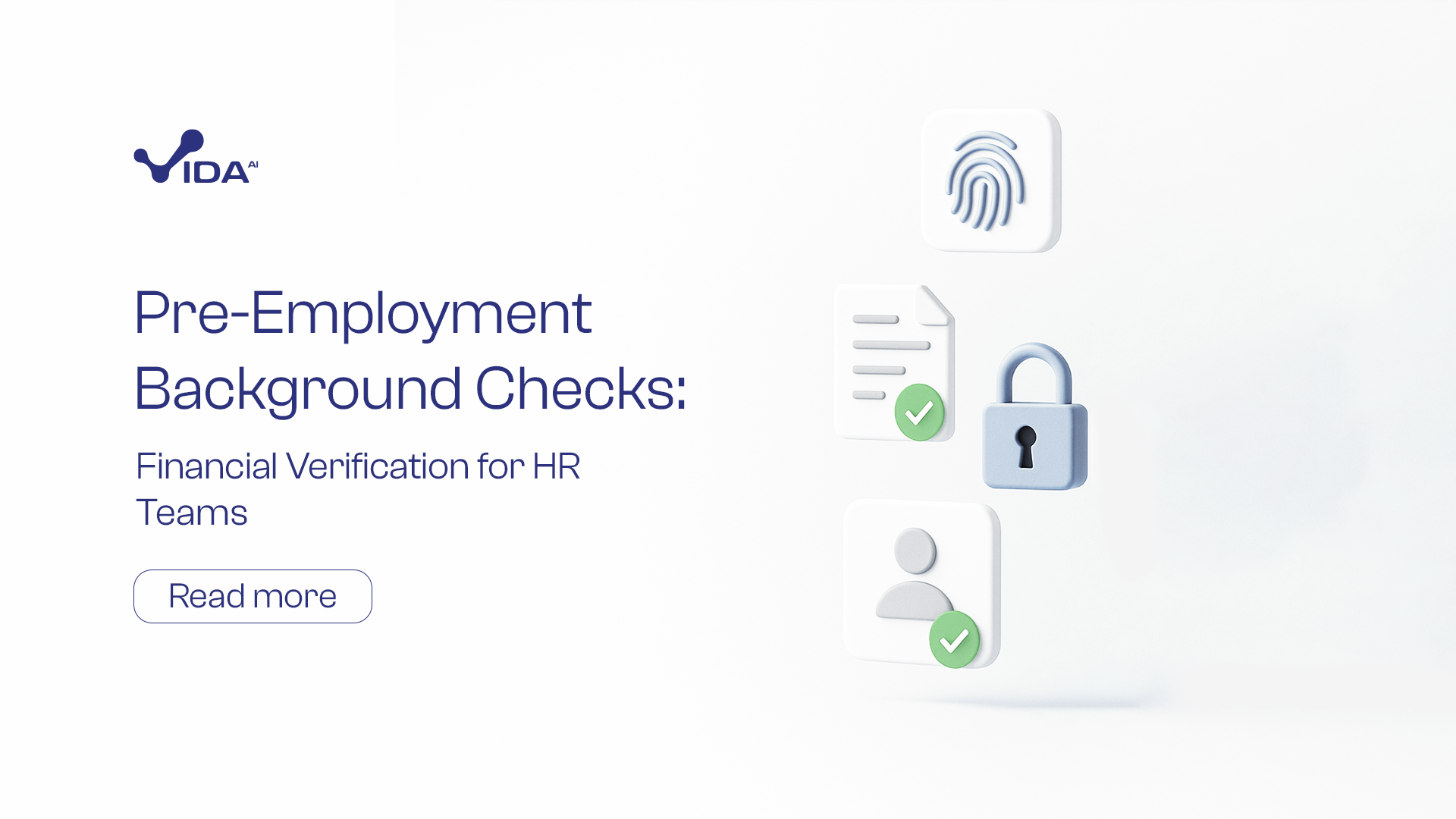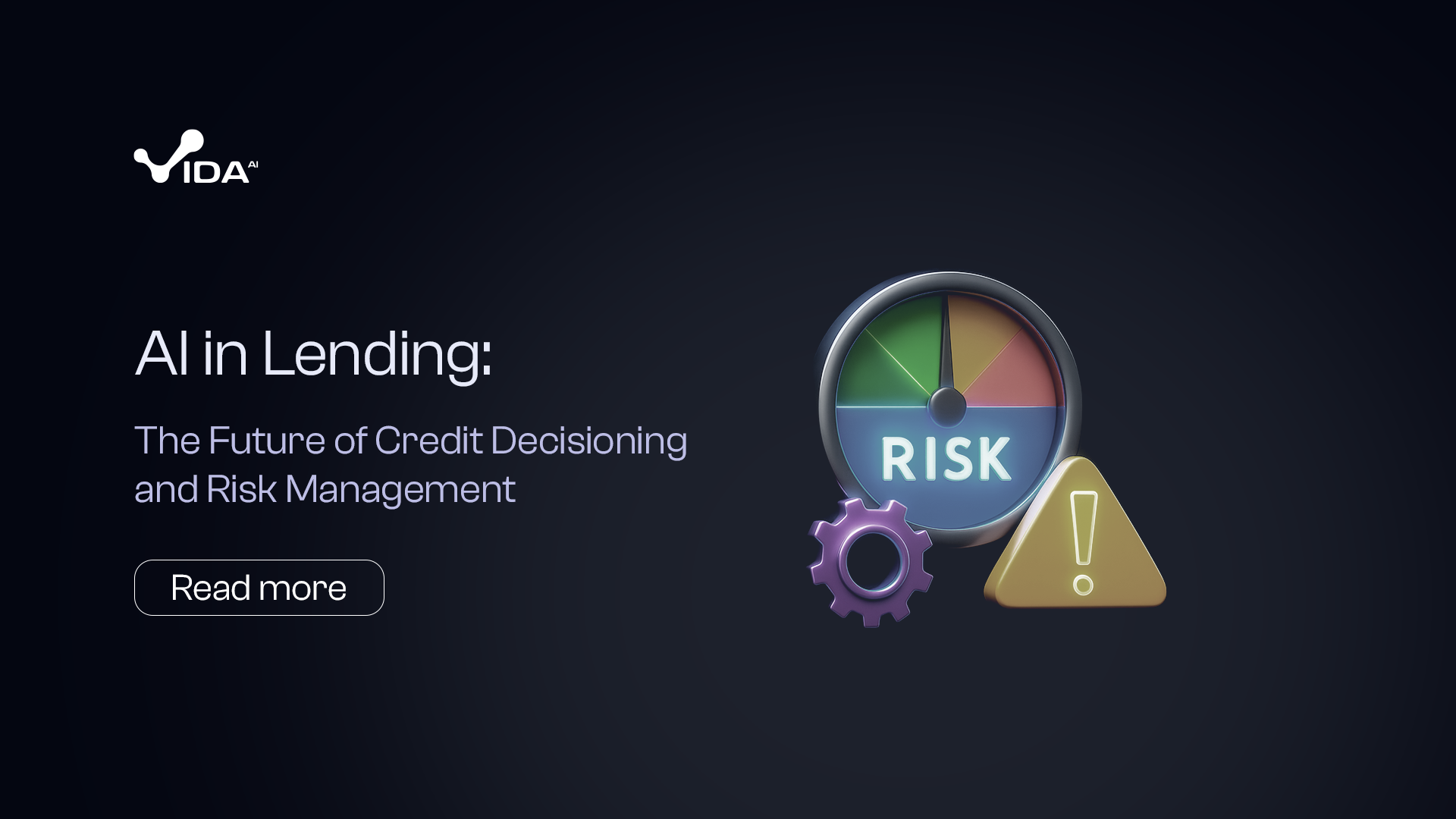back to Articles
Pre-Employment Background Checks: Financial Verification for HR Teams

Eniayewu Josephine
Content Writer
Pre-employment financial verification has evolved from basic credit checks to comprehensive financial integrity assessments that protect organizations from fraud, theft, and regulatory violations. With employee fraud costing businesses over $50 billion annually, HR teams require sophisticated verification tools that balance thorough risk assessment with candidate privacy rights and legal compliance requirements.
The Business Case for Financial Verification
Employee financial stress creates elevated risks for organizations across multiple dimensions. Workers experiencing financial difficulties show higher rates of absenteeism, reduced productivity, and increased likelihood of engaging in fraudulent activities that damage company assets and reputation.
Positions involving financial responsibilities, customer data access, or regulatory compliance require heightened verification standards. Banks, healthcare organizations, and government contractors face specific regulatory requirements that mandate comprehensive background investigations including financial verification components.
Cost-benefit analysis demonstrates that thorough pre-employment screening prevents losses far exceeding verification costs. A single case of employee fraud or embezzlement typically costs organizations hundreds of thousands of dollars in direct losses, investigation expenses, and reputational damage.
Insurance implications also factor into verification decisions, as many commercial policies require documented hiring practices that include appropriate background verification. Comprehensive screening may reduce insurance premiums while providing liability protection against negligent hiring claims.
Components of Comprehensive Financial Verification
Credit report analysis provides insights into payment history, outstanding debts, and financial management patterns that may affect job performance or create security risks. However, credit scores alone provide incomplete pictures requiring additional verification components.
Bankruptcy and court record searches identify financial legal issues that may indicate poor judgment, potential security risks, or conflicts of interest with employment responsibilities. These records often reveal information not captured in standard credit reports.
Identity verification prevents fraud and ensures thorough background investigation accuracy. Comprehensive identity confirmation includes Social Security number validation, address history verification, and alias identification that reveals complete candidate backgrounds.
Financial crime database searches identify individuals with histories of fraud, embezzlement, or other financial crimes that create obvious employment risks. These specialized databases often contain information not available through standard background check providers.
Technology Solutions for HR Teams
Automated screening platforms streamline verification processes while ensuring compliance with legal requirements. Integration with applicant tracking systems enables seamless workflow management that reduces administrative burden and processing time.
AI-powered risk assessment analyzes multiple data sources simultaneously to identify patterns and anomalies that indicate elevated risk. Machine learning models process complex information relationships that human reviewers cannot efficiently analyze at scale.
Real-time verification capabilities provide immediate results for urgent hiring decisions while maintaining thoroughness and accuracy. API integration with authoritative data sources enables instant verification without sacrificing quality.
Compliance automation ensures adherence to FCRA requirements, state regulations, and company policies through systematic process enforcement. Automated documentation, consent management, and adverse action procedures reduce legal risks while improving efficiency.
Position-Specific Verification Requirements
Financial services positions typically require comprehensive credit verification, regulatory database searches, and enhanced identity verification. These roles involve direct access to customer funds and sensitive financial information that creates elevated risk exposure.
Healthcare positions may require verification related to patient care responsibilities, insurance fraud detection, and regulatory compliance. Professional license verification, sanctions screening, and financial integrity assessment protect patient welfare and organizational compliance.
Technology positions with data access privileges require verification that addresses potential insider threats, intellectual property theft, and customer data protection. Security clearance requirements may mandate extensive financial investigation procedures.
Executive and management positions warrant enhanced verification that includes reputation assessment, conflict of interest evaluation, and comprehensive financial analysis. Leadership roles create organization-wide risk exposure that justifies intensive screening procedures.
Future Trends in Employment Verification
Artificial intelligence increasingly enables more sophisticated risk assessment through pattern recognition and predictive analytics. AI systems may identify risk indicators that traditional screening approaches miss while reducing manual review requirements.
Blockchain technology could provide tamper-proof employment and education verification that reduces fraud while streamlining verification processes. Distributed ledger systems may enable instant verification of credentials and background information.
Continuous monitoring of existing employees may supplement pre-employment screening with ongoing risk assessment. Real-time alerts about financial changes, legal issues, or other risk factors could enable proactive risk management.
Pre-employment financial verification represents a critical component of comprehensive hiring risk management that protects organizations while ensuring fair treatment of candidates. HR teams implementing effective verification programs reduce fraud risk, improve regulatory compliance, and make better hiring decisions that contribute to organizational success.
Sign Up Now to streamline financial background checks with AI-powered verification.

